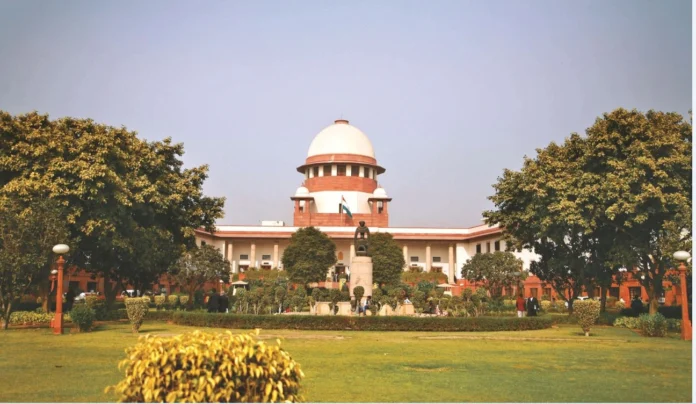By Dr Swati Jindal Garg
“To become better, you have to admit your ignorance—at least to yourself.”
—William A Pasmore
The above insight finds resonance in the Supreme Court’s recent decision to discard its point-based system for designating senior advocates. In a significant shift aimed at restoring integrity and transparency to the process, the apex court has introduced a new set of guidelines that places final authority in the hands of the Full Court—replacing the numerical assessment model that has been in place since 2017.
The decision was handed down by a bench of Justices AS Oka, Ujjal Bhuyan and SVN Bhatti, which acknowledged that the earlier system had not lived up to its intended goals. “The point-based assessment is not flawless… we have realised that with experience,” the bench observed.
FROM OPAQUE TO TRANSPARENT?
The system had its origins in a 2017 petition by Indira Jaising, India’s first woman senior advocate, who called the previous designation process opaque and arbitrary. The outcome was a structured, point-based system administered by a permanent committee that evaluated candidates on metrics, such as years of practice, reported judgments, publications, and a personal interview. However, this model soon drew criticism for being overly rigid, prone to subjectivity, and exclusionary of lawyers from non-metropolitan or trial court backgrounds.
Although the point system was revised in 2023 in response to these concerns, it still fell short of expectations. Now, in a decisive move, the Supreme Court has restructured the process yet again—this time giving final decision-making power to the Full Court of the respective court.
WHAT’S NEW?
Under the new framework:
- The Full Court of the Supreme Court or High Courts will decide designations based on consensus, or if needed, a secret ballot.
- The Permanent Secretariat established in 2017 will remain functional, vetting applications and forwarding eligible names to the Full Court.
- Judges cannot individually recommend candidates, and applications are no longer mandatory—courts may act suo motu.
- The eligibility threshold of 10 years’ legal practice stays intact.
- Courts are directed to conduct at least one designation exercise annually and amend the existing rules within four months to align with the new judgment.
TRIGGERING THE OVERHAUL
Ironically, the catalyst for this overhaul came from a seemingly unrelated case. During a parole hearing in a double murder case, Justice Oka observed that a designated senior advocate had misrepresented facts. This lapse of professional ethics sparked a broader introspection about the criteria for awarding senior status.
The concern was referred to the chief justice, leading to the constitution of a special bench to revisit and refine the system. The new guidelines are a direct outcome of that initiative.
THE ROLE AND THE RESPONSIBILITY
Under Section 16(2) of the Advocates Act, 1961, and Rule 2(a) of Order IV of the Supreme Court Rules, 1966, senior advocates are expected to uphold a higher standard. They cannot directly interact with clients, file applications, or draft pleadings independently. Instead, their role is advisory and strategic—often reserved for complex, high-profile cases.
The goal of this systemic reboot is not just procedural—it’s philosophical. As the Supreme Court bench noted: “The endeavour of all stakeholders should be to keep improving the system… so that not a single deserving advocate is left out.”
WHAT LIES AHEAD
The debate over fairness, merit, and diversity in senior designations is far from over. Whether the new model succeeds in fostering a more inclusive, merit-based approach remains to be seen. But in acknowledging past mis-steps and acting to correct them, the judiciary has shown a rare willingness to self-correct—a trait all too rare in the corridors of power.
For now, the message is clear: seniority must be earned, not assumed—and credibility can no longer hide behind closed doors.
—The author is an Advocate-on-Record practising in the Supreme Court, Delhi High Court and all district courts and tribunals in Delhi


